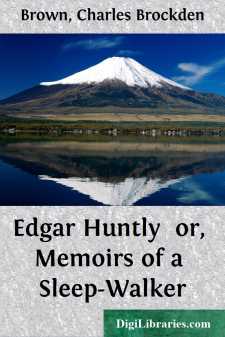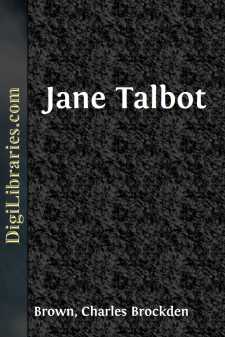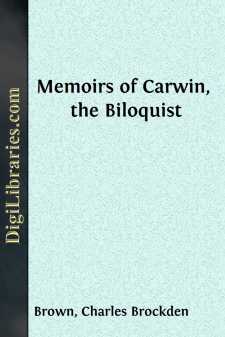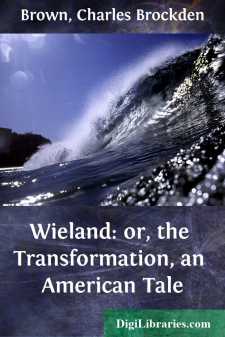Categories
- Antiques & Collectibles 13
- Architecture 36
- Art 48
- Bibles 22
- Biography & Autobiography 813
- Body, Mind & Spirit 142
- Business & Economics 28
- Children's Books 17
- Children's Fiction 14
- Computers 4
- Cooking 94
- Crafts & Hobbies 4
- Drama 346
- Education 46
- Family & Relationships 57
- Fiction 11829
- Games 19
- Gardening 17
- Health & Fitness 34
- History 1377
- House & Home 1
- Humor 147
- Juvenile Fiction 1873
- Juvenile Nonfiction 202
- Language Arts & Disciplines 88
- Law 16
- Literary Collections 686
- Literary Criticism 179
- Mathematics 13
- Medical 41
- Music 40
- Nature 179
- Non-Classifiable 1768
- Performing Arts 7
- Periodicals 1453
- Philosophy 64
- Photography 2
- Poetry 896
- Political Science 203
- Psychology 42
- Reference 154
- Religion 513
- Science 126
- Self-Help 84
- Social Science 81
- Sports & Recreation 34
- Study Aids 3
- Technology & Engineering 59
- Transportation 23
- Travel 463
- True Crime 29
Edgar Huntly or, Memoirs of a Sleep-Walker
Categories:
Description:
Excerpt
Chapter IX.
There ended his narrative. He started from the spot where he stood, and, without affording me any opportunity of replying or commenting, disappeared amidst the thickest of the wood. I had no time to exert myself for his detention. I could have used no arguments for this end, to which it is probable he would have listened. The story I had heard was too extraordinary, too completely the reverse of all my expectations, to allow me to attend to the intimations of self-murder which he dropped.
The secret which I imagined was about to be disclosed was as inscrutable as ever. Not a circumstance, from the moment when Clithero's character became the subject of my meditations, till the conclusion of his talk, but served to confirm my suspicion. Was this error to be imputed to credulity. Would not any one, from similar appearances, have drawn similar conclusions? Or is there a criterion by which truth can always be distinguished? Was it owing to my imperfect education that the inquietudes of this man were not traced to a deed performed at the distance of a thousand leagues, to the murder of his patroness and friend?
I had heard a tale which apparently related to scenes and persons far distant: but, though my suspicions have appeared to have been misplaced, what should hinder but that the death of my friend was, in like manner, an act of momentary insanity and originated in a like spirit of mistaken benevolence?
But I did not consider this tale merely in relation to myself. My life had been limited and uniform. I had communed with romancers and historians, but the impression made upon me by this incident was unexampled in my experience. My reading had furnished me with no instance in any degree parallel to this, and I found that to be a distant and second-hand spectator of events was widely different from witnessing them myself and partaking in their consequences. My judgment was, for a time, sunk into imbecility and confusion. My mind was full of the images unavoidably suggested by this tale, but they existed in a kind of chaos, and not otherwise than gradually was I able to reduce them to distinct particulars, and subject them to a deliberate and methodical inspection.
How was I to consider this act of Clithero? What a deplorable infatuation! Yet it was the necessary result of a series of ideas mutually linked and connected. His conduct was dictated by a motive allied to virtue. It was the fruit of an ardent and grateful spirit.
The death of Wiatte could not be censured. The life of Clithero was unspeakably more valuable than that of his antagonist. It was the instinct of self-preservation that swayed him. He knew not his adversary in time enough to govern himself by that knowledge. Had the assailant been an unknown ruffian, his death would have been followed by no remorse. The spectacle of his dying agonies would have dwelt upon the memory of his assassin like any other mournful sight, in the production of which he bore no part.
It must at least be said that his will was not concerned in this transaction....






